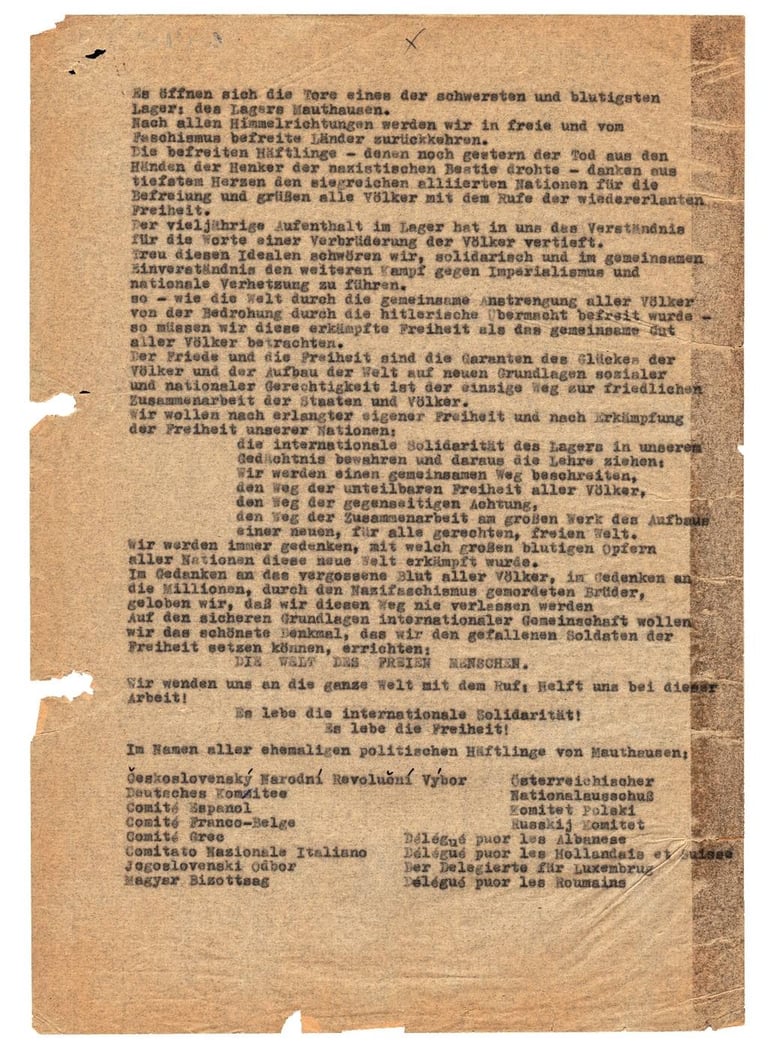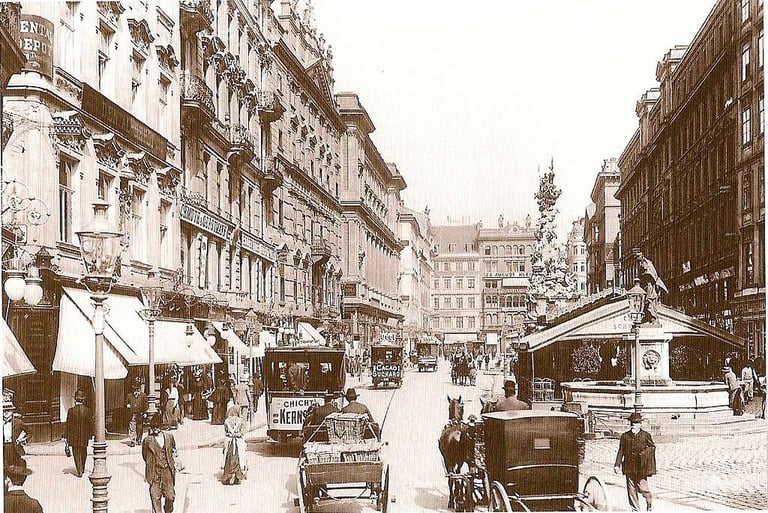

Vienna: where the ‘Jewish state’ was formulated
Vienna Graben 1890, Street-View, Vienna, Austria.
Source: Wikimedia Commons
Zionism emerged at a time of the rise of racist nationalism at the end of the 19th century, with its supremacism and desire to annihilate the other, outright colonialism and imperialism. Herzl's work, ‘The Jewish State’, which he wrote in Vienna in 1896, is characterised by this experience. In response to anti-Semitism, he imagined a purely Jewish settler state in Palestine or Argentina, in the spirit of the time, as a supposed perspective for the political emancipation of Judaism.
Jewish anti-Zionism: a repressed tradition
However, from the very beginning, there were voices among Jews who opposed Zionism - for religious, ethical or political reasons. Orthodox movements rejected Zionism as an interference in divine providence, while secular Jewish socialists and universalists criticised it as nationalistic and colonial.
Chief Rabbi Moritz Güdemann, for example, rejected Herzl's vision even during his lifetime, as it would transform Judaism from a religion into a national movement. As a result of these tensions, the first Zionist World Congress was not held in Vienna in 1897, but in Basel.
These diverse anti-Zionist traditions were increasingly marginalised in the 20th century, especially after the founding of the state of Israel in 1948, but they were always there - and are now increasingly being heard again in the face of the ongoing genocide against the Palestinians.
Senior Rabbi Moritz Güdemann, Wikipedia
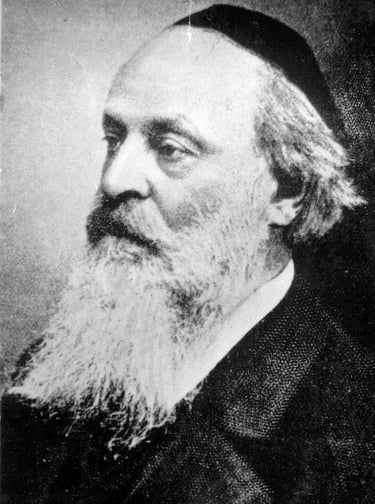

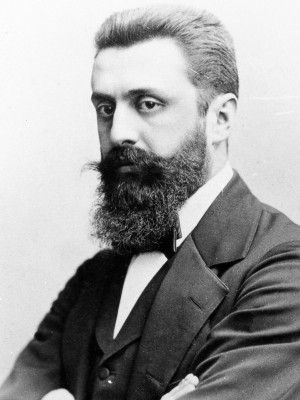

Theodor Herzl, Wikipedia
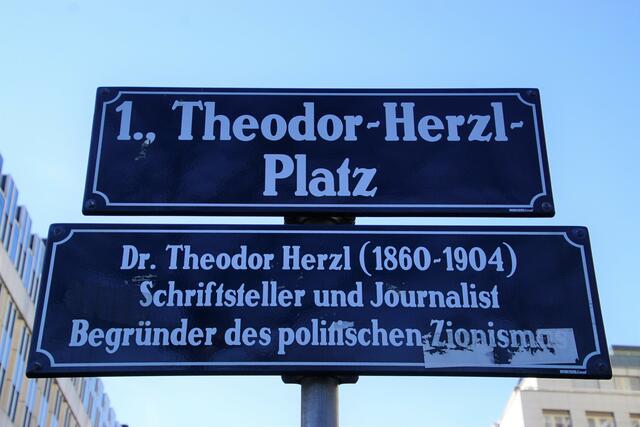

Theodor-Herzl-Square, Vienna, Austria
In the historical mirror: Vienna 2025 - a turning point
150 years after Herzl's birth, 128 years after the first Zionist congress - and 50 years after UN Resolution 3379, which described ‘Zionism as a form of racism’ - anti-Zionists, with and without Jewish roots, are gathering at this congress to counter the Zionist narrative that Israel is the guarantor of Jewish life, to network, to organise and to strengthen resistance against genocide.
Vienna is not only symbolically significant because Herzl developed his Zionist vision here. It is also the place where resistance to it arose early on - for example through Rabbi Moritz Güdemann, who condemned Zionism as a betrayal of the spiritual depth of Judaism. Later, it was many Jewish communists who resisted National Socialism and at the same time vehemently rejected Zionism.
The UN resolution of 1975, despite later being withdrawn, represented a significant moment of international criticism. But our congress goes beyond that: It is not a diplomatic gesture, but an expression of a Jewish self-image based on ethics, resistance and solidarity.
InIn the spirit of the Mauthausen Oath, which urges us to stand up for a just and free world for all peoples in the spirit of internationalism in order to overcome imperialism, fascism and ethnically based nationalism, we are coming together to express our solidarity with the victims of ethnic cleansing and their resistance for a free Palestine, and to put those in power in Western countries who make this settler colonialism possible in their place through our collective protest.
The first Viennese Jewish anti-Zionist congress 2025
Vienna is the place to which political Zionism once owed its most famous work. With the Congress on Jewish Anti-Zionism in June 2025, Vienna will now also become the place that makes the anti-Zionist positions of Jews heard publicly and formulates a clear rejection of the appropriation of Jewish identity to justify colonial violence and against the appropriation of Judaism by Zionism.


A central element of Israel's legitimization is the appropriation and reinterpretation of anti-fascism. Instead of making reparations for A central element of Israel's legitimisation is the appropriation and reinterpretation of anti-fascism. Instead of making reparations for the crimes of the National Socialists after the Second World War, taking care of denazification and guaranteeing an equal, safe life for Jews in Europe, European countries support Israel, which was presented as the only safe and legitimate refuge for Jews from anti-Semitism. Settler colonialism is sold as an ‘anti-fascist act’. The resistance of Palestinians against occupation, apartheid, expulsion and genocide is compared by Israel and its supporters to Nazi terror, thereby legitimising genocide.
However, the universal message of anti-fascism - to stand up against all forms of imperialism, racism and oppression and to fight for equality and democracy - has been and continues to be turned into its opposite and used to justify the racist, colonial, ethnic-nationalist project of Zionism.
Today, this appropriation of anti-fascism allows the rulers of Western countries, the right-wing and left-liberal authoritarian movements, to sell themselves as ‘anti-fascist’. Their solidarity with Israel officially vouches for this. Under the guise of the alleged ‘fight against anti-Semitism and fascism’, they are taking action against opposition forces and creating new enemy images. Muslims and people of Arab origin in particular are demonised as a ‘danger to democracy’, especially if they want to play a part in shaping politics. The chauvinistic approach against Muslims is also used to restrict the democratic rights of opposition forces. They use repression against those who stand in the tradition of anti-fascism and oppose the genocide of Palestinians, delegitimising and criminalising the movement. Critics, human rights and peace activists are brought into the neighbourhood of National Socialism and anti-Semitism by this operation and the distorted culture of remembrance, which has been perverted into state raison d'être (as in Germany).
Anti-fascism and the alleged ‘fight against the right’ are thus not only being used for the Israeli genocide, but also to undermine fundamental rights in general. Public demonstrations are banned and prohibited, university camps are evacuated, political slogans are criminalised, accounts are blocked, etc. This is happening not only in Austria, but worldwide. It is therefore our task and a goal of the congress to reposition anti-fascism as an internationalist, anti-imperialist, anti-racist movement - against its perversion, which manifests itself in the support of Western states with Israel and the repression of human rights activists.
Anti-fascism is anti-Zionism: About the appropriation of
anti-fascism to legitimize genocide
Mauthausen Oath, 16.5.1945
"The gates to one of the worst and most bloody concentration camps are being opened: those of Mauthausen. We are about to return to our countries that have been liberated from Fascism, which had spread itself in every direction. The liberated prisoners, just as long ago as yesterday, menaced with death by the hands of the executioner of the Nazi beast, give thanks, from the bottom of their hearts for the liberation made possible by the victorious allied nations, and greet people of every nation with the cry of freedom attained once again.
The permanence in the camp, lasting years, has reinforced in our minds the knowledge of the value of brotherhood among the people of all nations. "True to these ideals, we make a solemn oath to continue to fight, firm and united, against imperialism and against the instigation of hatred between peoples. Just as the common effort of all of the peoples of the world was able to liberate us from the menace of the prepotency of Hitler, we must consider the liberty obtained with struggle as a common source for every people.
Peace and freedom are the only guarantees for the happiness of people of every nation, and the reconstruction of the world on a new basis of social and national justice is the only way towards the pacific collaboration between states and peoples. After having obtained our coveted freedom and after our nations have obtained freedom with armed struggle, we wish to:
Conserve the international solidarity of the camp in our memories and to derive from it the necessary lessons; follow a common path; the one of freedom - indispensable for every population, of reciprocal respect, of collaboration in the great work of constructing a new world that is free and just for all. We will forever remember the many terrible sacrifices that the conquest of this new world has cost for every nation.
In memory of the blood shed by all peoples, in memory of the millions of brothers assassinated by Nazi-Fascism, we solemnly swear to never abandon this path. We want to erect the most beautiful monument that one could dedicate to the soldiers who have fallen for the cause of freedom of the international community on a secure basis:
A WORLD OF FREE MEN!
"We direct ourselves to the entire world, shouting: help us in this work!
"Long live international solidarity!
"Long live freedom!"

,,Every year, the International Liberation Ceremony begins with the reading of the Mauthausen Oath in more than 20 different languages - at a place like the former Mauthausen concentration camp,
where German was the only permitted language from 1938 to 1945,
we are thus sending out a particularly strong signal of internationality."
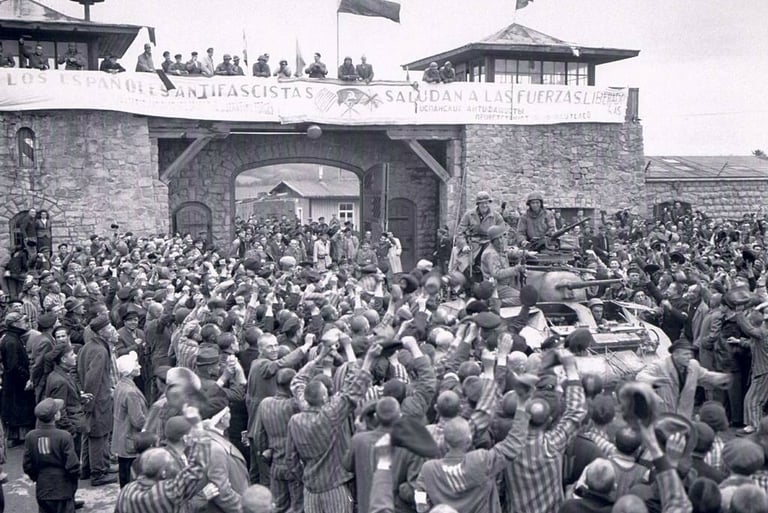

Re-enacted scene of the first arrival of American soldiers in Mauthausen, probably May 7, 1945 (Photo: US National Archives and Records Administration)
Jewish Anti-Zionist Congress | Vienna
Organized by the association
“For Democracy and Human Rights in Palestine”
ZVR: 1213260151
info@juedisch-antizionistisch.at
© 2025. All rights reserved.

